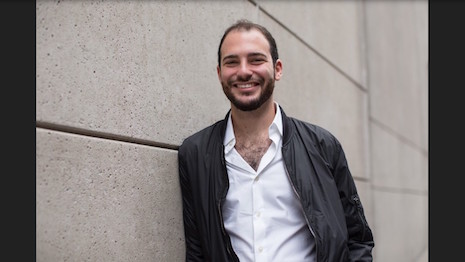- About
- Subscribe Now
- New York,
February 2, 2018

 Adam Rivietz is cofounder and chief strategy officer of #paid
Adam Rivietz is cofounder and chief strategy officer of #paid
By Adam Rivietz
In the world of public relations and social media, pitching is a common tactic that is used across the board.
If you are not familiar with the term, pitching is essentially the action of offering your idea to someone else in the hopes that they will be on board with what you want to do.
Some methods of pitching include:
Pitch fork
Pitching started long before the dawn of social media and is now considered a standard practice across the marketing industry.
Often times, pitching and the negotiation that comes out of it occurs behind closed doors, and consumers only see the outcome: a beautiful magazine spread, a successful marketing strategy, stunning visual content on a blogger's Instagram or a YouTuber's travel vlog.
What consumers do not see is the back-and-forth negotiation between the pitcher and the receiver.
YouTuber Elle Darby recently came under fire when The White Moose Cafe in Dublin, Ireland posted her email pitch on its public Facebook Page.
A snippet of her original email to the hotel pulled from The Independent:
“I work as a social media influencer, mainly lifestyle, beauty & travel based.
“My partner and I are planning to come to Dublin for an early Valentine’s Day weekend from Feb 8th to 12th to explore the area.
“As I was searching for places to stay, I came across your stunning hotel and would love to feature you in my YouTube videos/dedicated Instagram stories/posts to bring traffic to your hotel and recommend others to book up in return for free accommodation.”
A typical and professional response might include include a simple “no, sorry” or even radio silence. Paul Stenson, The White Moose Café owner, instead chose to post the email that he received onto his hotel’s Facebook page with his response:
“Dear Social Influencer (I know your name but apparently it’s not important to use names),
“Thank you for your email looking for free accommodation in return for exposure. It takes a lot of balls to send an email like that, if not much self-respect and dignity.
“If I let you stay here in return for a feature in a video, who is going to pay the staff who look after you? Who is going to pay the housekeepers who clean your room?
“The waiters who serve you breakfast? The receptionist who checks you in? Who is going to pay for the light and heat you use during your stay?
“Maybe I should tell my staff they will be featured in your video in lieu of receiving payment for work carried out while you’re in residence?”
“P.S. The answer is no.”
Visitors to his page were quick to identify the sender, as the censoring was apparently done with a roughly ~80 percent opacity. Users noted that if you squinted or even simply turned up the brightness, you could still make out the name.
 Dublin hotelier Paul Stenson shamed blogger Elle Darby on his Facebook page by posting her pitch for a free stay in lieu of a review. Readers quickly gleaned her identity even though it was somewhat blacked out
Dublin hotelier Paul Stenson shamed blogger Elle Darby on his Facebook page by posting her pitch for a free stay in lieu of a review. Readers quickly gleaned her identity even though it was somewhat blacked out
The post has since been removed, but comments calling her "entitled" and "a freeloader" still resonate, which prompted Elle to film and post this video onto her YouTube channel in defense of her actions:
Blogger Elle Darby's YouTube response on being publicly shamed by a Dublin hotelier
Pay for stay
As you may expect, supporters of Ms. Darby rained down their own backlash onto the Dublin hotel across Facebook, Twitter and Instagram.
“Following the backlash received after asking an unidentified blogger to pay for a hotel room, I have taken the decision to ban all bloggers from our hotel and café. The sense of entitlement is just too strong in the blogging community,” Mr. Stenson posted in retaliation.
Turning to industry-leading influencers for their opinions, I received the below thoughts:
“When traveling, I frequently pitch accommodation collaborations. I always do my research first to make sure that the place that I’m pitching is actually in line with the content that I would regularly post – proving that I would like the place regardless. There have been many times where I’ve been in the opposite situation and hotels/resorts pitch me a collaboration. This is standard practice. If at any time either parties aren’t interested, it’s as easy as saying no or even simply ignoring the email. I’ve never felt the need or malicious intent to expose anyone or write a publicly scathing letter in response. Nor have I received that either. Why? Because we are all mature professionals. There’s no point in burning ourselves down in the process of not agreeing with someone’s pitch.” – Victoria Hui (@thelustlistt)
“I’ve participated in numerous staycation campaigns that have been pitched to me directly from a hotel – more so than I’ve ever pitched back to them. While I understand that there is a cost involved to cover the salary of employees who work at the establishment, this would be coming from a PR/marketing budget, which is a lot less than their typical campaigns. My rates are a fraction of what it would cost for a magazine or billboard spread. And I pride myself in spending the time to curate content that resonates well with my followers. I wouldn’t necessarily reach out to a brand if I didn’t think that my audience or personal aesthetic would be a fit.” – Sylvia Jade (YouTube Channel: @beautycakez)
IT IS WORTH noting that while many brands and business owners may not be fans of influencer marketing, and may often be approached in a manner that appears entitled, platforms such as Buzz & Go exist to mitigate such relationships, ultimately proving that the tourism industry relies just as heavily on influencers, as influencers do on the tourism industry.
The lesson here?
If you need to say no, just say no. It is not necessary to single out one individual just to make an example of them to get your point across to the rest of the industry.
Adam Rivietz is cofounder and chief strategy officer of #paid, New York. Reach him at adam@hashtagpaid.com.
Share your thoughts. Click here